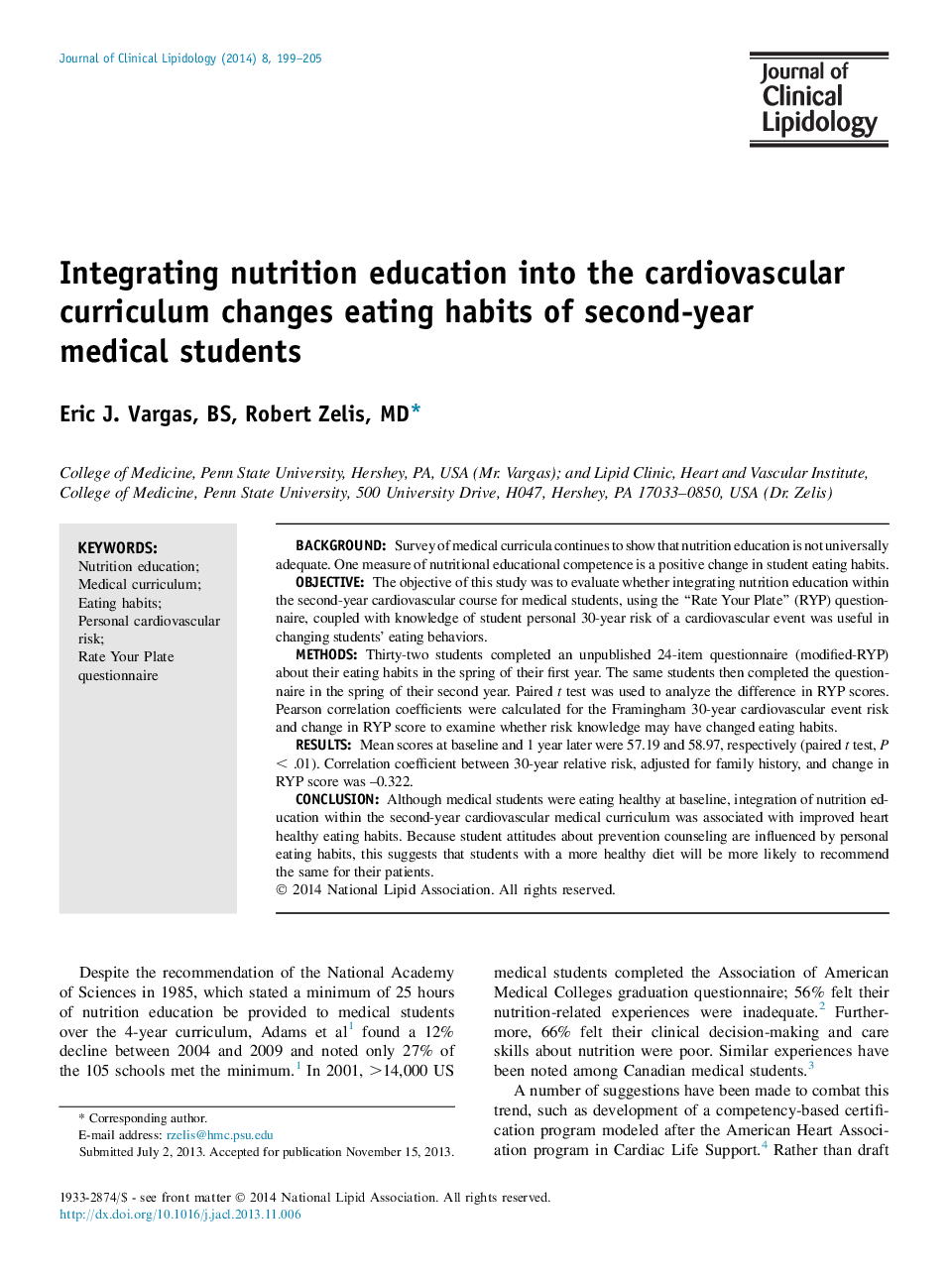| کد مقاله | کد نشریه | سال انتشار | مقاله انگلیسی | نسخه تمام متن |
|---|---|---|---|---|
| 2966273 | 1178800 | 2014 | 7 صفحه PDF | دانلود رایگان |
► Teaching nutrition within an organ systems course has the potential to improve diet.
► Nutrition education may contribute to a favorable change in student eating habits.
► Personalizing cardiovascular risk does not change behavior in a low-risk population.
BackgroundSurvey of medical curricula continues to show that nutrition education is not universally adequate. One measure of nutritional educational competence is a positive change in student eating habits.ObjectiveThe objective of this study was to evaluate whether integrating nutrition education within the second-year cardiovascular course for medical students, using the “Rate Your Plate” (RYP) questionnaire, coupled with knowledge of student personal 30-year risk of a cardiovascular event was useful in changing students’ eating behaviors.MethodsThirty-two students completed an unpublished 24-item questionnaire (modified-RYP) about their eating habits in the spring of their first year. The same students then completed the questionnaire in the spring of their second year. Paired t test was used to analyze the difference in RYP scores. Pearson correlation coefficients were calculated for the Framingham 30-year cardiovascular event risk and change in RYP score to examine whether risk knowledge may have changed eating habits.ResultsMean scores at baseline and 1 year later were 57.19 and 58.97, respectively (paired t test, P < .01). Correlation coefficient between 30-year relative risk, adjusted for family history, and change in RYP score was –0.322.ConclusionAlthough medical students were eating healthy at baseline, integration of nutrition education within the second-year cardiovascular medical curriculum was associated with improved heart healthy eating habits. Because student attitudes about prevention counseling are influenced by personal eating habits, this suggests that students with a more healthy diet will be more likely to recommend the same for their patients.
Journal: Journal of Clinical Lipidology - Volume 8, Issue 2, March–April 2014, Pages 199–205
